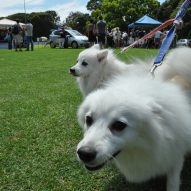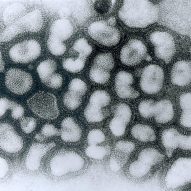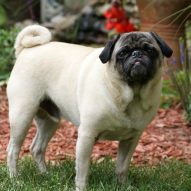Why do cats drool? | Dr. Justine Lee
Ah, the old saying, “Cats rule, dogs drool.” We cat lovers know that our four-legged friends are fastidious groomers – in other words, they like to stay clean. So cats rarely drool the way that our canine companions do. So what does it mean when cats drool, and what should you do? First, if you notice your cat drooling, this is highly abnormal and warrants a veterinary visit. That’s because drooling is often due to underlying medical problems in cats such as: Dental disease Kidney...
Read MorePoisonous plants to dogs & cats | Dr. Justine Lee
Not sure what plants are poisonous to dogs and cats? Here’s a fantastic chart from the makers of Toxiban, an activated charcoal product for poisoning cases in veterinary medicine! When in doubt, if you think your dog or cat ingested a poisonous plant, contact ASPCA Animal Poison Control Center at (888) 426-4435. You can check out their poisonous plant information here. Download the PDF here poisonous Plant Toxiban...
Read MoreCelebrating Earth Day with your pets: Going green with your dog and cat!
After attending veterinary school at Cornell in Ithaca, NY, I became a crunchy, hippy, granola-y, recycling fanatic. After all, I like to save dog and cat lives, while recycling one can at a time! While most pet owners are pretty eco-friendly (after all, we scoop our own dog’s poop, right?), some people may not realize the impact of all those extra carbon footprints that your four-legged dog or cat produce also. So, as we approach Earth day, a few earth-friendly tips for pet...
Read MoreUpdate in Canine Influenza Virus | Dr. Justine Lee
For those veterinary professionals staying informed about the Canine Influenza Virus (CIV), read on! The recent outbreak of CIV in the Chicago area has been confirmed to be Asian H3N2. Based on genome sequencing of this virus, it appears to be the same virus that has been isolated from dogs and cats from South Korea. This is based off a canine nasal swab sample from a dog with respiratory disease from the Chicago outbreak area; genome sequence of an influenza virus cultured from this dog...
Read MoreTop 10 poisons affecting dogs and cats | Dr. Justine Lee
Human Medications Top the List of ASPCA Animal Poison Center Concerns ASPCA Animal Poison Control Center releases new app providing pet owners with quick info on 275+ potential toxins April 16, 2015 NEW YORK—The ASPCA® (The American Society for the Prevention of Cruelty to Animals®) and its Animal Poison Control Center (APCC) today revealed that human medications again top of the list of toxins most commonly ingested by pets, according to cases handled by the APCC. The ASPCA’s...
Read MoreCongestive heart failure in dogs | Dr. Justine Lee
As an emergency specialist, I often see both dogs and cats presenting to the emergency room due to congestive heart failure (CHF). CHF can be caused from several different types of diseases, and ultimately results in failure of the heart to pump blood throughout the body effectively. When pump failure occurs, it results in blood backing up into the lungs, resulting in fluid accumulation in the body. Fluid most commonly accumulates in three locations: directly in the lungs (e.g., pulmonary...
Read More




Recent Comments